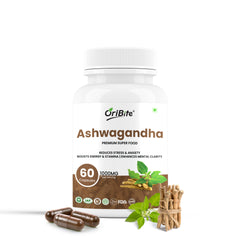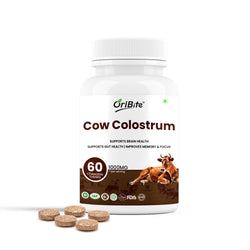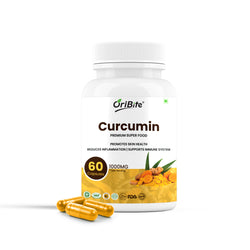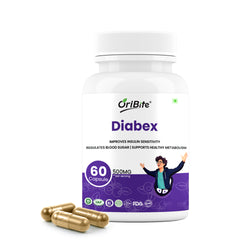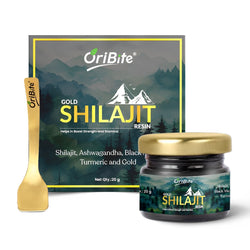Introduction
The human body has built-in metabolic systems to absorb and process essential vitamins and minerals in their pure forms. However, such is not the case for vitamin B12. The human body cannot synthesize the B12 vitamin on its own and must thus depend on dietary or supplement sources to meet such needs. Clearly, a vitamin that is involved in energy metabolism and neurological function can be of most importance.
Functions of Vitamin B12 in the Body
● Nerve Function: This also contributes to maintaining the myelin sheath, the nerve covering that promises effective nerve signal transmission.
● Red Blood Cell Formation: B12 helps in the production of red blood cells to keep them healthy and prevent megaloblastic anemia , which leads to fatigue and weakness.
● DNA Synthesis: It participates in DNA replication that is important during cell division and growth.
● Energy Metabolism: B12 helps transform nutrients into energy to energize the whole body.

Sources of Vitamin B12
● Meat and Poultry: They are found largely in beef, chicken, and liver.
● Fish and Shellfish: Salmon, trout, and clams contain large amounts of them.
● Dairy Products: Milk, cheese, and yogurt.
● Eggs: including the yolks.
Challenges of Obtaining B12 on Plant-Based Diets
Plant-based diets often fail to contain vitamin B12 despite being very scarce in plant foods. A few plant-based sources like nutritional yeast and fortified cereals may provide B12, though bioavailability and consistency were often variable. This is why supplementation is commonly advisable for those observing vegetarian or vegan lifestyles.
Health Benefits of Vitamin B12 Capsules
● Prevention of Deficiency Symptoms: Regular consumption can help avert symptoms such as fatigue, weakness, and neurological manifestations.
● Support for Cognitive Function: Adequate levels of vitamin B12 are associated with improved memory performance along with a reduced risk of cognitive decline-related disorders.
● Maintenance of Cardiovascular Health: B12 helps to reduce an individual homocysteine concentration, which is a risk factor for heart disease.
Symptoms and Risks of Vitamin B12 Deficiency
● Neurological Symptoms: Numbness, tingling in extremities, and balance problems.
● Psychological Symptoms: Depression, memory loss, and changes in behavior.
● Hematological Symptoms: Megaloblastic anemia manifested by fatigue and pallor.
Interactions with treatment or with the drug itself can cause further complications in B12 deficiency, which, if left untreated, could lead to irreversible and serious nerve damage.

How much to use?
● Adults: 2. 4 micrograms a day.
● Pregnant Women: 2.6 micrograms a day.
● Breastfeeding Women: 2.8 micrograms a day.
Also, older adults and those having absorption issues will require more due to doctor's advice.
Choosing the Right Vitamin B12 Supplement
● Forms of B12: There are two common forms of B12, namely cyanocobalamin and methylcobalamin, and the latter is the more bioavailable of the two.
● Dosage Forms: Available in capsules, tablets, sublingual lozenges, and injections.
● Quality Considerations: Choose a product that is verified for purity and potency by reputable organizations.
Potential Side Effects and Safety Precautions
Vitamin B12 is known to be safe as it is a water-soluble vitamin; the excess gets flushed out through urine. While some may experience it differently, some of the possible experiences include:
● Minor Side Effects: Mild digestive discomfort, nausea, or headache (very rare).
● Allergic Reactions: Swelling, itching, or difficulty in breathing (very rare).
● Drug Interaction: Vitamin B12 might reduce its absorption when taken together with other drugs like proton pump inhibitors (PPIs), metformin, and anticonvulsants.
It is advisable that if you are on medication or have other health issues, you consult a health worker prior to the beginning of the supplement.
Frequently Asked Questions
1. Does this product contain corn flour, or is it gluten-free?
Yes, ORIBITE Vitamin B12 Capsules are gluten-free and plant-based, making them
suitable for individuals with dietary restrictions.
2. If this product is plant-based, how does it provide Vitamin B12?
The capsules contain fortified plant-based ingredients like Stevia Leaves, Alfalfa,
Moringa, Wheatgrass, and Beetroot, which are rich in bioavailable B12 or aid in
absorption.
3. What are the symptoms of Vitamin B12 deficiency?
Deficiency symptoms include fatigue, dizziness, memory loss, tingling in hands and
feet, pale skin, and mood changes.
4. What happens if Vitamin B12 deficiency is ignored?
Long-term deficiency can cause irreversible nerve damage, cognitive decline, anemia,
and heart complications.
5. Are animal foods the only natural sources of Vitamin B12?
Yes, animal products like meat, eggs, and dairy are the primary natural sources. However, plant-based B12 sources include fortified cereals, nutritional yeast, and algae.
Conclusion
Vitamin B12 is a key nutrient necessary for nerve functioning, red blood cell production, and DNA synthesis. For people following a purely vegan diet or who might have any issues absorbing B12, taking Oribite Vitamin B12 Capsules will help tremendously in maintaining the appropriate level of the vitamin.
By optimizing B12 supplementation as part of your lifestyle, you are able to sidestep the health consequences of deficiency while also drastically improving your overall vitality, helping your cognitive function, and boosting your immunity.
If you wish to help promote your everyday wellness with safe, plant-based, and effective methods, choose the Oribite Vitamin B12 Capsules!


